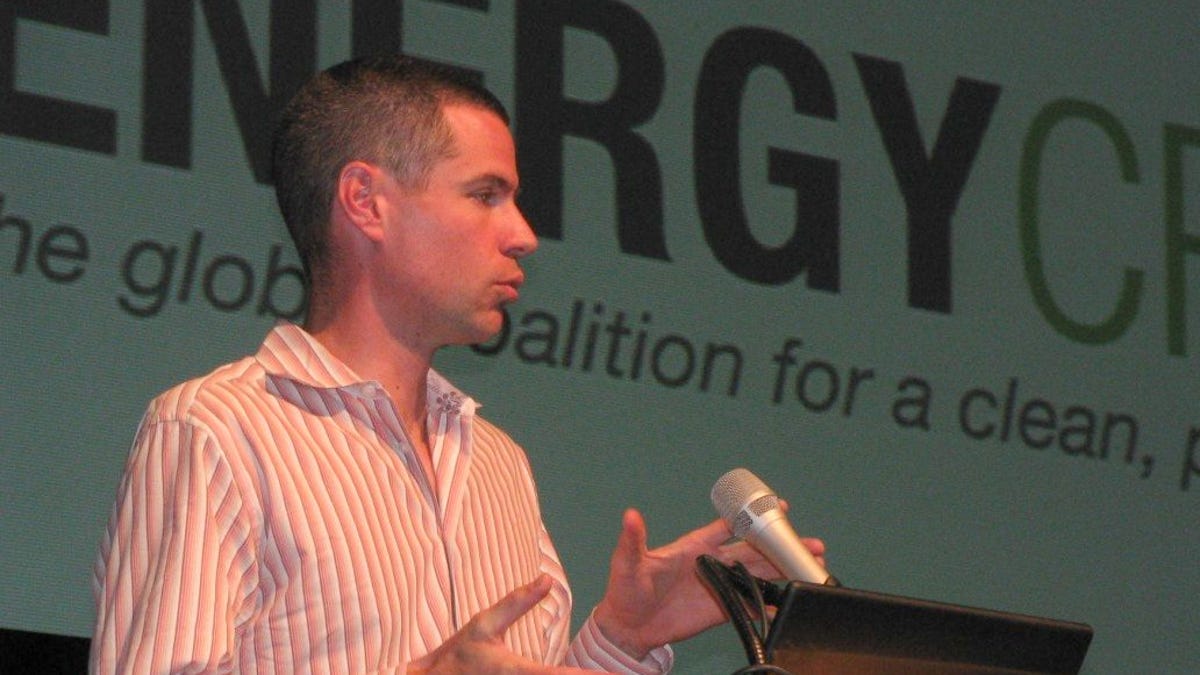Is environmentalism dead? Not with a cool $1 trillion
As the need to curb global warming comes sooner than imagined, governments and businesses need to pony up and work together, says Michael Shellenberger.

PALO ALTO, Calif.--Al Gore is wrong about how to stave off ecological catastrophe. So is President George W. Bush. But don't look to Europe or clean-tech entrepreneurs to save the planet either; neither regulations nor free market capitalism alone will prevent the fast and furious acceleration of global warming.
That's according to Michael Shellenberger, who with Ted Nordhaus in 2004 proclaimed the "Death of Environmentalism" in a notorious essay that infuriated people of nearly every political stripe and argued that the tactics of mainstream "green" groups were off the mark.
Shellenberger and Nordhaus run the Breakthrough Institute, a progressive research group. In October they published Break Through, which urges the public and private sectors to invest every effort to boost the clean-energy sector.
"We do have to get rid of the mythology of Silicon Valley a little bit here. How did it start? "Well, it all started in Bill Hewlett's garage. The reality is HP wouldn't exist if they hadn't gotten a Pentagon contract for their radios."
Speaking at the Energy Crossroads conference at Stanford University Thursday, Shellenberger cited recent figures from Australian economist Peter Sheehan suggesting that greenhouse gas emissions must level off or begin to decline as soon as 2020. That's a much more ambitious goal than that of the Intergovernmental Panel on Climate Change, which pegged 2050 as the time frame in which global emissions need to be under control.
To achieve the goal of the Nobel Prize-winning IPCC, every year the world would need the equivalent of 30 new nuclear plants; 17,000 wind turbines; 400 biomass plants, two Three Gorges-sized hydroelectric dams, and 42 coal or natural gas plants that capture and store carbon, according to the International Energy Agency.
Sheehan says those developments need to happen, but at a faster pace, saying emissions grew more than 3 percent between 2000 and 2005, not by 1.6 percent as the IPCC estimated.
The carbon pollution set to rise from China, India, and other developing nations within the next several decades is likely to dwarf improvements made by the developed world, Shellenberger noted. For instance, energy use in China in 2006 was 15 percent higher than its government projected for 2010.
And don't give Europe too much credit for being clean and green. Its emissions rose 1 percent per year between 2000 and 2005, double the speed of those in the United States. Plus, Europe's greenhouse gases jumped a staggering 10 percent between 1990 and 2005, not counting Britain and Germany, where cleaner forms of energy emerged through reasons unrelated to ecological policies.
Making clean energy cheap is key, Shellenberger said.
"You might pay more for that iPhone because it's a great piece of technology, but most people aren't going to pay more for energy that comes from clean sources."
What's the right idea? A trillion-dollar, decade-long investment in a clean-energy portfolio by the world's leading economies, according to Shellenberger.
Among the encouraging signs, in his view: Google.org's campaign to make clean energy cheaper than coal; newfound attention from Congress to support "green" jobs; the call in December by Nobel-winning scientists to create a $30 billion per year "Manhattan Project" for clean energy.
That's a pretty short list if Shellenberger is right about the world needing grand schemes within a tiny window of time.